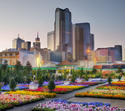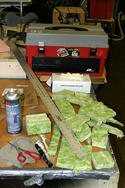The 20-year effort by environmentalists to establish climate science as the primary basis for far-reaching action to decarbonize the global energy economy today lies in ruins. Backlash in reaction to “Climategate” and recent controversies involving the Intergovernmental Panel on Climate Change (IPCC)’s 2007 assessment report are but the latest evidence that such efforts have evidently failed.
While the urge to blame fossil-fuel-funded skeptics for this recent bad turn of events has proven irresistible for most environmental leaders and pundits, forward-looking greens wishing to ascertain what might be salvaged from the wreckage would be well advised to look closer to home. Climate science, even at its most uncontroversial, could never motivate the remaking of the entire global energy economy. read more »





















